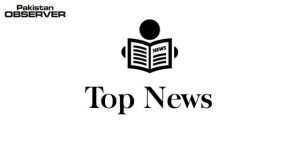PAKISTAN considers it has come a long way in setting standards for social media platforms by putting in place a set of rules aimed at protecting users from abuse, fake news, blasphemous content and hate speech.
The new online content rules 2020 are aimed at safeguarding the country from an unprecedented onslaught of Hybrid Warfare due to regional and extra-regional re-alignments.
The rules have been designed to block and remove fake news and propaganda against the country’s national security institutions, blasphemous content, hate content and other sensitive material that violates the cultural and ethnic norms of the country.
The revised Social Media Rules of Pakistan were prepared by a committee constituted by Prime Minister Imran Khan under the Chairman PTA, after a due consultation process with various relevant national and international stakeholders.
Draft rules after vetting by MoL&J were processed by MoITT for Cabinet and stood approved on Oct 6, 2020.
The ‘Removal and Blocking of Unlawful Online Content (Procedure, Oversight and Safeguards) Rules 2020’ prepared under the Prevention of Electronic Crimes Act were meant to regulate the online content.
Tech companies, ISPs, digital watchdogs, legal fraternity and the general public were engaged for input and the document was compiled in conformity with Article 19 of the Constitution
However, the approval of revised rules has drawn reaction from various interest groups and NGOs including the Digital Rights Foundation, BoloBhi, Nighat Dad, Asian Internet Council and Social Media giants.
Pakistan’s Perspective
Pakistan’s digital economy is estimated to be in the tune of US 5.5 Billion $ which in some domains is growing at a phenomenal rate of 100% per annum.
While the local NGOs and activists fear that global tech companies may be forced to shut down their operations in Pakistan.
However, the huge amount of business that these tech giants generate in Pakistan will never be compromised for laws that do not impact their revenue in essence.
The new rules have virtually no impact on e-Commerce. However, the critics fail to realise that each country has its own cultural, religious and social values and domestic laws tailored to suit its interests.
Every State adopts and enacts a set of laws that conform to its ideology, all domains of national security and foreign policy aims.
No two states have similar laws, nor the global community guidelines can supersede law of the land.
The Freedom of expression is itself a vague and controversial term and is interpreted differently by each state.
Providing a cleaner and non-toxic internet space to youth will have huge positive impact for future generations.
Cutting down on the adverse impact of fake, false, immoral, unethical, anti-religion news, rumors, posts, analysis is an obligation for any State to ensure a chaos free society. This national obligation is protected and furthered by the enacted rules.
Pakistan is facing an unprecedented onslaught of Hybrid Warfare due to regional and extra regional re-alignments.
It is therefore imperative for the State of Pakistani to defend itself against this invasion of chaotic cyberspace and mould it to draw advantages rather allowing an unhealthy ingress impacting social fibre of the society.
The new rules would help in quick removal of unlawful, defamatory, obscene and pornographic content from social media platforms and are fully in compliance with the Prevention of Electronic Crimes Act that was passed by Parliament in 2016.
Under the rules, the social media companies and internet service providers with more than half a million users in Pakistan were also required to register with the authority, establish a permanent office in Islamabad, and appoint a focal person based in the country within nine months and within three months, respectively, of coming into force of these rules.—APP










